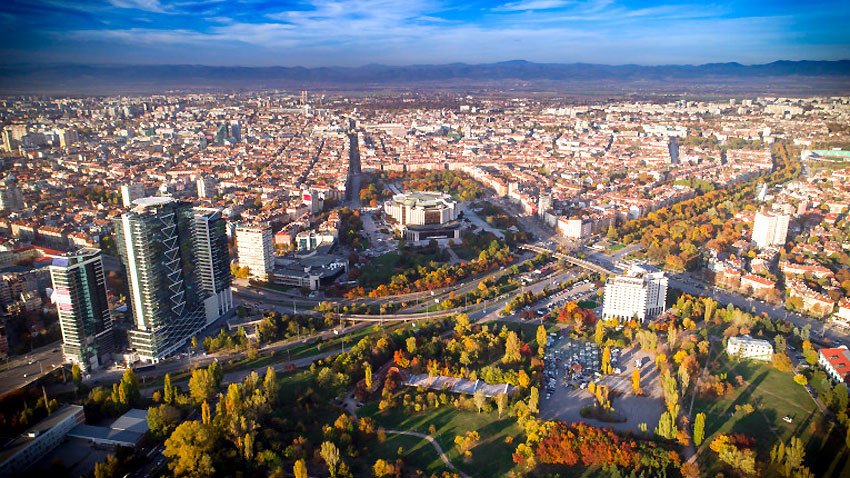
The motto of the capital of Bulgaria Sofia is Ever Growing, Never Aging. If we take a quick glance at the municipality’s planned budget for 2019, we shall see that besides growing and never getting old, it is also getting richer.
Sofia Mayor Yordanka Fandakova has incurred a great deal of public wrath of late over the substandard repairs in the very heart of the capital city, yet she is evidently banking on a record-high budget for Sofia in 2019 to win back the approval of the people of Sofia. As a matter of fact 2019 is a double-barreled election year – the first time the elections are for European Parliament, and the second time – local elections, and many observers were quick to pronounce the city’s new budget a Fandakova pre-election subterfuge.
Whether that is so, or whether this is mere speculation, one thing is certain – that in 2019 Sofia is planning to collect and to spend 818 million euro, as against 731 million in 2018, or an increase of 11 percent. As a matter of fact, this is the biggest budget in the modern history of the city. By way of comparison it should be noted that the budget of Bulgaria’s second biggest city Plovdiv stands at 190 million euro. It should also be noted that this increase is not going to be obtained by upping taxes, except for old cars which parliament approved and implemented nationwide. A sizeable portion of the money will come from European operational programmes – 166 million euro. The biggest share will be invested in infrastructure – 282 million euro, 156 million of which in the third line of the Sofia metro.
It looks like the capital city is thriving, yet people from outside Sofia keep reminding the public that Bulgaria is not Sofia, and that all other regions, with very few exceptions, are much less advanced and much poorer. Experts corroborate this by citing facts and figures. For example: the average monthly salary for the country is around 600 euro, whereas in Sofia is it over 750. Unemployment nationwide stands at a little under 6 percent, in Sofia there are labour shortages. Sofia accounts for over 40 percent of Bulgaria’s GDP, and close to 2 million out of the total of the 7 million Bulgarians live in the capital city.
All of which goes to show that Sofia is the administrative, but also the political and cultural centre of Bulgaria, and the most economically powerful city. And that means that a lot is being manufactured here, and that consumption is higher than in the provinces. It is no coincidence that foreign visitors who come to the city often say they see the urban landscape constantly changing, and the people growing wealthier.
All this is, naturally, reflected in the budget of the city, and in the plans on how to spend the municipal money from budget 2019. Tackling the environmental problems of Sofia, where particulate matter and heavy smog in winter-time have been a serious problem for people living in the city, is high up on the municipality’s list of priorities. That is why the municipality is earmarking money to help households which use coal or firewood for heating. They will be assisted in the transition to wood pellets. Urban transport will receive gas- and electricity-powered vehicles, new tramcars and trolleybuses will be provided. A number of city parks and gardens will be refurbished and developed, and an aquapark will be built. And more – main streets and boulevards will undergo repair so as to make the city more attractive and to ease traffic.
The past year, 2018, has been far from successful in this regard, with the repairs done or still going on in the city’s centre sparking much criticism and widespread discontent. To such an extent that one of the municipality’s deputy mayors saw fit to hand in his resignation, and Mayor Fandakova promised all repair work would be strictly monitored and high standards of material quality maintained. Whether these are lessons the municipal councilors have learnt is something we shall see for ourselves over this election year.
English version: Milena Daynova
The final price at which Bulgargaz will sell natural gas in December to end suppliers and to persons with a license for the production and transmission of thermal energy is 75.89 BGN/MWh (excluding excise duty and VAT), the company announced...
Butter and vegetable oil are the products that have increased in price the most over the year. The retail price of vegetable oil will range between 3 and 5 BGN (EUR 1.5-2.5) per liter until the new harvest. The value of the small consumer basket,..
The assets of private pension funds have reached EUR 13 billion. According to data from the Financial Supervision Commission, they have increased by more than 20% compared to the same period last year. As of September 30, 2024, the number of..
Bulgarian National Bank (BNB) Governor Dimitar Radev has met with EU ambassadors and discussed the country's upcoming accession to the..
With a growth of 2.2 percent, Bulgaria is among the top 6 countries in the EU, Caretaker Minister of Economy Petko Nikolov reported..

+359 2 9336 661
